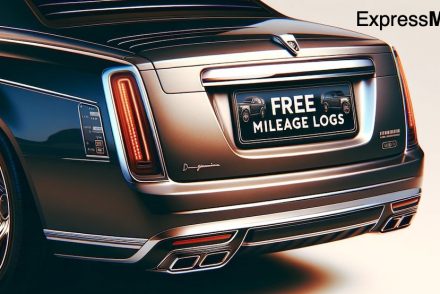When you drive for work, you might need to keep track of your trips. This is called a logbook. It’s important for getting money back from your employer or for tax reasons with the Canada Revenue Agency (CRA).
What You Need for Your Employer
Your boss may pay you for driving if it’s for work. They usually use a rate set by the CRA. You need to write down:
- Date of your trip
- Where you went
- Why you went there
- How far you drove
Your boss might ask for more info, like when you drove and your car’s odometer readings.
CRA Logbook Rules
If you’re using the driving costs to reduce your taxes, the CRA needs a detailed logbook. You should note:
- Date
- Destination
- Purpose
- Kilometres driven
Also, write down your car’s odometer readings at the start and end of the year. If you drive for both work and personal reasons, record everything. Plus, keep all your car expense receipts.
Two Ways to Log for the CRA
- Full Logbook Method: Write down all your driving details for the year.
- Simplified Logbook Method: First, keep a full log for one year. Then, you can use just three months of records to guess your driving for the whole next year.
Both methods need the same information.
Formats for Your Logbook
You can keep your logbook in many ways:
- On paper
- In a diary
- As a digital file, like Excel or PDF
Your employer will tell you what they prefer.
ExpressMileage – Mileage Log Generator
You can use a Mileage Log Generator like ExpressMileage to help recreate your mileage log.
The ExpressMileage Mileage Log Generator is a tool designed to make creating a mileage log quick and efficient. Here’s how it works and what makes it useful:
- Starting Simple: The process begins with a brief interview where you answer some straightforward questions. These questions help to build the basic framework of your mileage log.
- Autopopulate Feature: For those with predictable driving patterns, the Autopopulate function can automatically create a series of entries in the driving log. This feature is particularly handy for recurring trips, such as daily, weekly, or monthly drives.
- Customizing Your Log: You have the option to tweak your log using a calendar tool, which allows you to add, update, or delete entries. This is helpful for ensuring the accuracy and completeness of your log.
- Downloading the Log: Once you’re satisfied with the log, you can download or print it. The simplicity of the process means you can create a comprehensive log in just a few minutes.
- Benefits and Use Cases: ExpressMileage is especially beneficial for people who need to generate a mileage log quickly, such as for tax deduction purposes or in response to a tax audit. It’s ideal for individuals like Uber, Lyft drivers, or anyone who uses their personal vehicle for business and needs to track mileage for reimbursement or tax deductions. The tool is designed to be faster and more convenient than traditional apps that require long-term tracking.
- Security and Accessibility: The system is cloud-based, meaning you can access your log from anywhere, and it’s secured with encryption to keep your data safe. This also means you won’t lose your log due to computer issues.
ExpressMileage stands out for its ability to generate complete logs for one or more years within minutes, a feature that sets it apart from other mileage tracking systems. Whether you’re preparing for an IRS audit, claiming tax deductions, or need a log for business reimbursements, ExpressMileage offers a quick and compliant solution.
For more detailed information and to try the tool, you can visit ExpressMileage and mileagewiz.com.
Automated Apps
If keeping a logbook sounds hard, there are apps that can do it for you. They automatically record your trips, making it easier to claim your driving expenses from the CRA or your employer.
FREQUENTLY ASKED QUESTIONS
Do You Need to Write Down Your Car’s Mileage for Every Trip for the CRA?
No, you don’t have to note the mileage from your car’s odometer for each trip. The Canada Revenue Agency (CRA) only asks you to write down your car’s mileage at the start and the end of the year if you’re using the logbook method for your car expenses.
But remember, your job might have different rules. They could ask you to write down the odometer reading more often.




